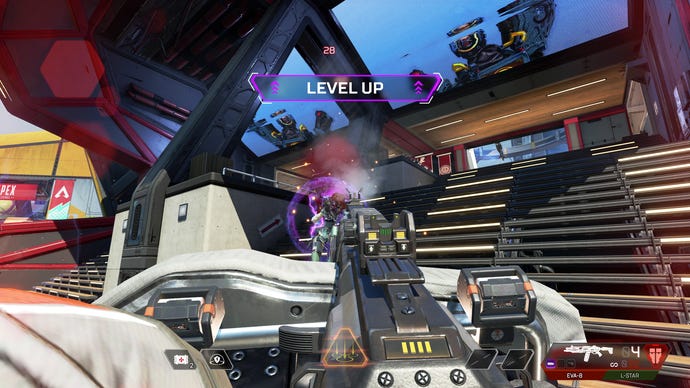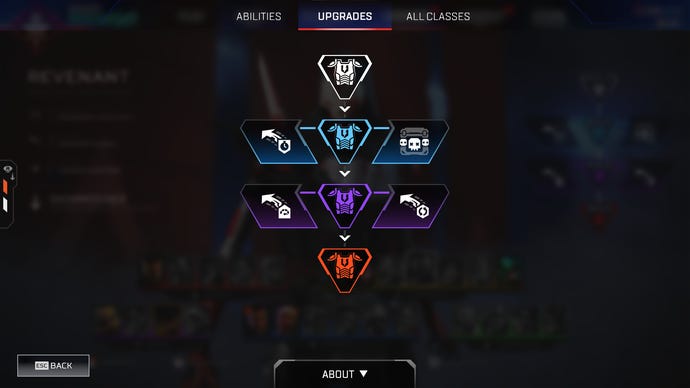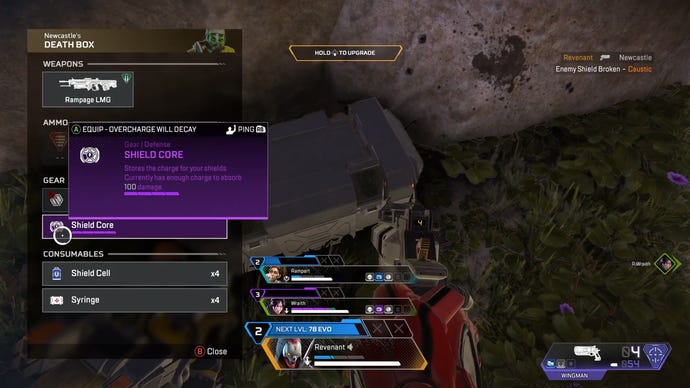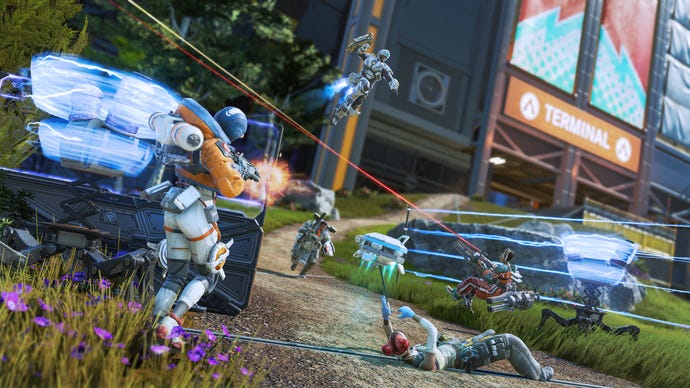Apex Legends Season 20's skill trees see the battle royale take a surprising MOBA turn
"Legend upgrades" aim to reward fiercer fighting and diminish RNG
I’ve played Apex Legends Season 20, and it might be the fastest and fiercest that the battle royale FPS has ever been – while also being the richest in tactical opportunities and metagame theorycrafting. It's all thanks to a drastically expanded Evo experience system, one that now not only boosts your shield capacity, but unlocks the branches of a MOBA-style skill tree that permanently buffs your character for the duration of a match. Even for a season with no new playable Legend to headline, it’s an update that feels exciting and genuinely game-changing – if a little scary at the same time.
 Apex Legends: Breakout Launch Trailer
Apex Legends: Breakout Launch Trailer
See, if previous updates were about developers Respawn gently coaxing shy players into fighting more often, Season 20 – launching on February 13th, and appropriately titled Breakout – drops the subtleties and simply bribes them into a bloodbath. The new Evo system is both the carrot and the stick: earning points, mainly by doing damage, will now upgrade your armour capacity and grant access to “Legend upgrades” that improve your ability, movement, or looting efficacy. Many of these are simple cooldown reductions or minor stat bumps, but others could have a massive impact: Lifeline gaining a self-rez, for instance, or Octane being able to slap down a second jump pad.
Play passively, however, and those upgrades will remain out of reach. Meaning that even if you do sneak your way to the final ring, you’re much more likely to be facing a fully kitted-out squad at the peak of their powers. So, y’know, good luck, with that.

As Respawn’s lead battle royale designer Josh Mohan explained to me, Season 20 is also taking aim at certain RNG elements, reducing the impact of random luck and attempting to make match outcomes more dependent on the actual participants. To that end, body shields are now gone from ground loot pools entirely. You can still grab a new Shield Core item from deathboxes to swap out your armour in a pinch, but if it was higher-tier than what you were previously wearing, any extra health pips will gradually decay away. That means that the only way to permanently secure better shields is to gather those sweet, sweet Evo points.
There are other methods that Season 20 uses to 'encourage' faster, more aggressive play. Ranked mode’s points payout has been re-weighted so that kills are more valuable, especially during later ring contractions, thus rendering ratting an even less viable strategy. And crafting stations no longer use gathered materials, instead granting each player a single free consumable that pops out near-instantly. Squads can therefore grab something useful and move on, instead of spending precious non-murdering seconds standing around constructing half their loadout.
The biggest changes, though, are clearly the reworked shield system and the Legend upgrade skill trees. And although I suspect the shield changes will prove controversial, from what I’ve played, they do broadly seem like improvements. The lack of high-end armour lying around on the floor means that early engagements are no longer decided by whoever was lucky enough to land on a purple vest, and as matches progress, I generally experienced fewer health pool mismatches between my team and my enemies. I know that the best defence is a good offence in Apex, but good gravy, has it always sucked to go up against a team of red shields when you could never find anything better than a blue.

Working up through the skill trees also gives a clearer sense of each match having an early, mid and late game, another benefit the system brings over from MOBAs such as Heroes of the Storm (a key influence, according to lead game designer Devan McGuire) and Dota 2. Frankly, it’s also just nice to feel like I’m earning something. There’s a sense of progression here, completely separate to any paid-for Battle Pass nonsense, so even in some losses I could take solace in reaching a tree tier or shield level that I hadn’t previously. That’s good for morale, at the very least.
Dishing out damage isn’t the only way to rack up Evo points, either. Besides the small top-ups afforded by Evo Harvester stations around the map, you can now get little XP bounties by using your Legend’s class-specific ability. Skirmishers get a boost from scanning care packages, for example, while Control characters benefit from activating ring stations. And everyone can scrounge some Evo from actions that help the whole squad, like respawning a teammate. Earning the highest tiers of Legend upgrades and shield capacities will demand you get your hands dirty, but if you’re ever having trouble finding a fight, there are at least a few alternatives for getting your Evo count off the mark. Further incentivising the use of class-specific skills seems like the right move, as well – I definitely noticed both myself and teammates using them more liberally than in my recent pub games. Even a Support Legend cracking open their special loot bins feels like bagging a juicier prize.

At its best, Breakout has the potential to engineer a battle royale that’s both fairer and more satisfying, with more opportunities for positive reinforcement to breathe life back into a deflating loss. Where, then, could that scariness possibly come from?
Honestly, for all the fairness mentality, it’s hard not to see this new levelling-up system as a helping hand to the players that need it the least. Rewind from Season 20 to right now: in all my five years of playing, Apex’s public lobbies are currently the meanest I’ve ever seen them, with any average casual player reliably having to face coordinated, constantly max-shielded demigods who can shoot a wasp off a thimble at 600 paces. An abundance of experienced, hyper-skilled players is perhaps the inevitable result when an FPS has been active this long, but few of Season 20’s changes seem like they’ll help anyone else scrape a win through guile or grit. Most of them, in fact, will reward those already at the top, hitherto unavailable power upgrades included. I’m not saying a competitive shooter should subscribe to equality of outcome, but yes, I am absolutely afraid of tipping the scales in favour of players who always win anyway.
There’s also a distinct imbalance between some of the Legend’s individual skill tree perks, either in power or in fun. As a regular Horizon picker, comparing her modest cooldown reductions to the equivalent tier enhancements of other characters feels like attending a Disneyland-adjacent summer school. Lifeline can self-rez and Maggie can wreath her wrecking ball in flames, but you, dearie, better finish that essay if you want to knock 14% off your ultimate recharge.

At least a few of these upgrades cater for more specialised playstyles, sometimes provoking a genuinely thoughtful choice of which tree branch to pick. Wattson, for one, can either massively buff up her grenade-zapping pylon to better defend a single point, or opt to place a pair of weaker pylons for a more flexible, dynamic approach. There are tactical considerations here that simply didn’t exist in Apex before, and the fact that some of these talents do open up or expand on playstyles outside of the 'sprint at people and shoot them' meta is a heartening hint that this season isn’t purely about constant, unyielding hyperaggression.
There will be a lot of that, though. Maybe too much for those who play to relax. Personally, I enjoyed how those Evo changes impacted my own game enough that I’m willing to risk their impact on others’, even if I end up with more scars and significantly fewer teeth. Either way, Season 20 is set to change Apex Legends forever – fingers crossed it’s for the better.

















